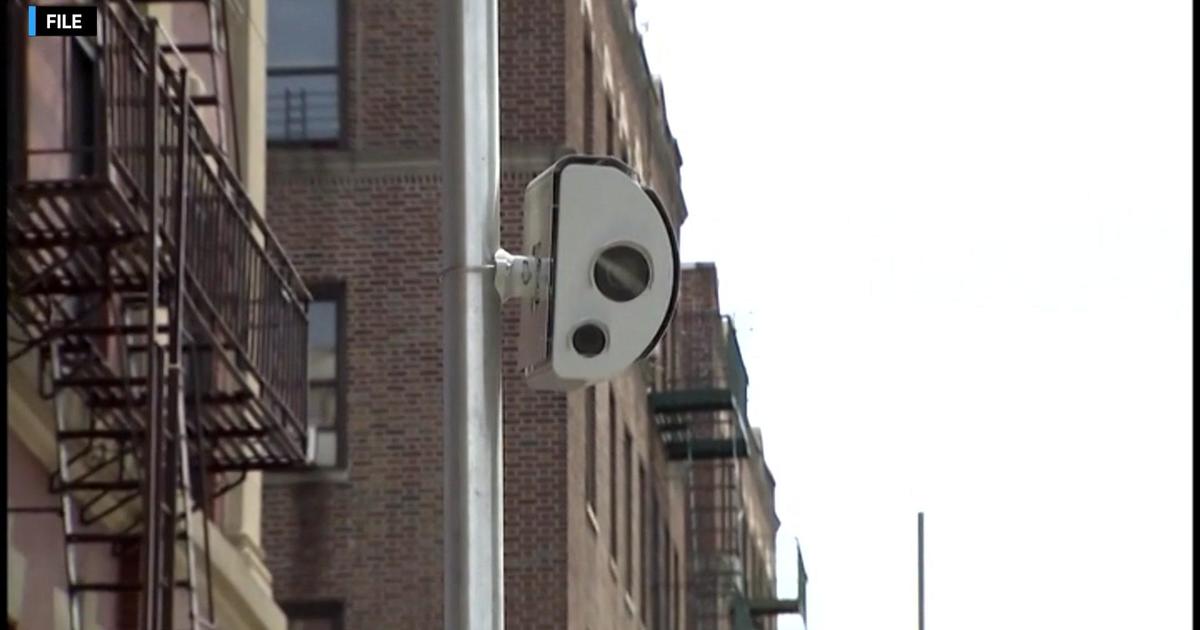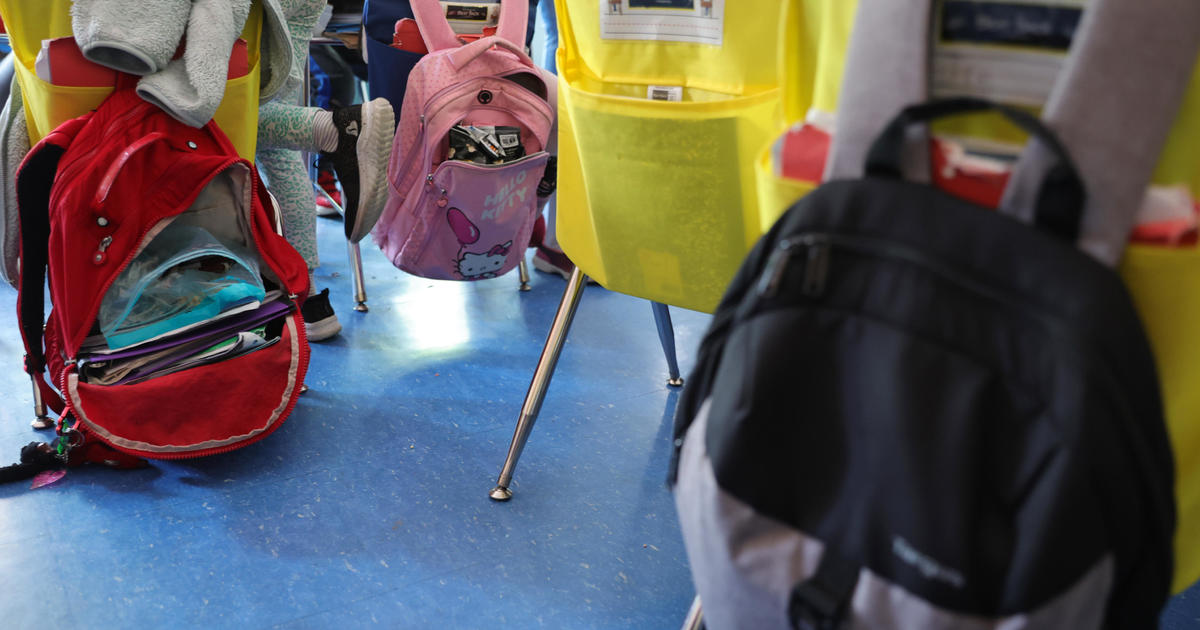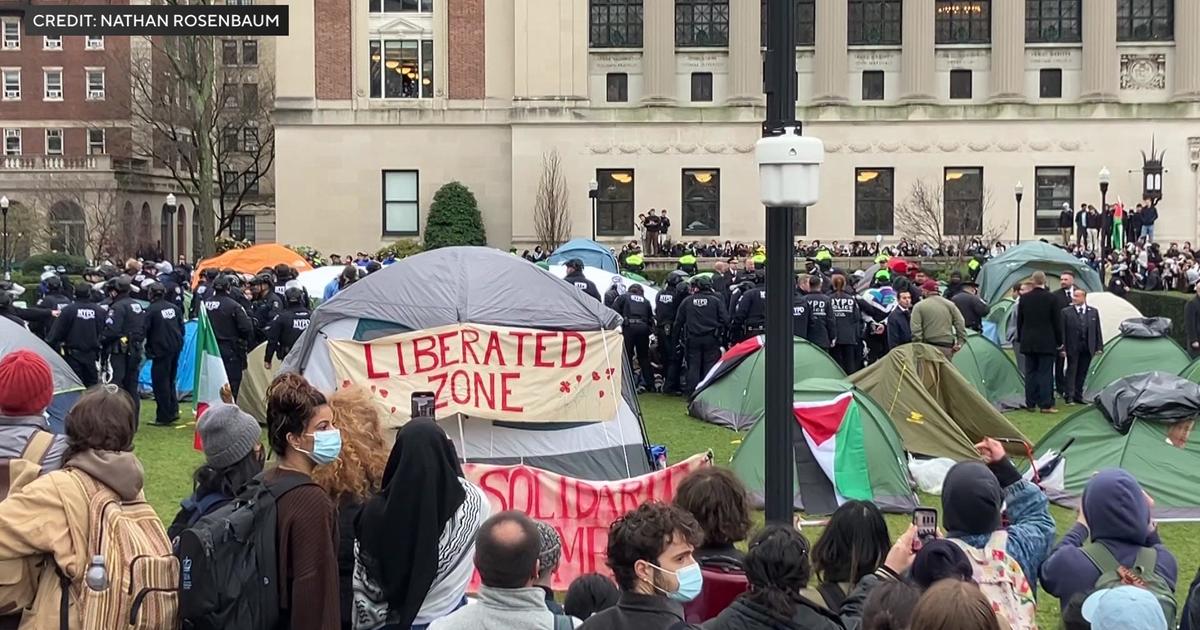NYC Politicians, Israel Skeptical About Iran's Diplomacy Offensive
NEW YORK (CBSNewYork/AP) -- Iran is launching a diplomatic offensive this week, but critics expressed their skepticism Monday at a rally across First Avenue from the United Nations headquarters, where world leaders are converging for this week's General Assembly.
Iran's new foreign minister, Mohammad Javad Zarif, will join talks with six key nations trying to rein in the Islamic Republic's nuclear program later this week at the United Nations, the European Union's foreign policy chief said Monday.
Thursday's meeting on the sidelines of the General Assembly would be the first in six years between a U.S. secretary of state and an Iranian foreign minister. It comes amid signs of a possible thaw in US-Iranian diplomatic relations, which were cut after the 1979 Islamic Revolution.
N.Y. Pols Vow Not To Be Fooled By Iran's Diplomacy Offensive
But as WCBS 880's Rich Lamb reported, some New York politicians denounced what they called Iran's "charm offensive," saying the rhetoric does not match the nation's actions. Opponents also railed against Iran's support of Hezbollah, the Bashar Assad regime in Syria and Iran's pursuit of nuclear capability.
"We must never allow President (Hasan) Rouhani and the Iranian regime to use diplomacy as a cover for business as usual," said U.S. Rep. Nita Lowey (D-N.Y.)
Both the Republican and Democratic candidates for mayor agreed that the United States must continue to pressure Iran to scrap its nuclear program.
"The Islamic nation of Iran continues to move forward with its creation of nuclear weapons," said Republican mayoral candidate Joe Lhota. "It continues to move forward with its spreading of terrorism all throughout the world. We need to stand together."
Democrat Bill de Blasio, the city's public advocate and Lhota's opponent in November's general election, said Iran has to pursue a fundamentally different path toward peace.
"We simply won't be fooled again after all these years of seeing the same malevolence," he said.
The Israelis are also not buying the latest assertions by the Iranians, CBS 2's Marcia Kramer reported.
"We already warned the Europeans and the Americans that right before Rouhani appears at the UN they're going to start what we call the 'smiling campaign.' Since his election he has deployed 2,000 new centrifuges and Iran is getting closer and closer to the nuclear weapons," Israel Intelligence Minister Yuval Steinitz said.
The Israeli concern comes as Iran is reaching something called "critical capability," the point where the rogue nation could produce enough nuclear material to produce a bomb without detection, perhaps as early as next year, Kramer reported.
Rouhani said Iran has no interest in nuclear weapons.
"Under no circumstances would we seek any weapons of mass destruction," Rouhani told CNN.
"Enough is enough. For four years the world was negotiating with Iran and Iran is now much closer today for nuclear weapons," Steinitz said.
Iran's intentions are of great concern not only to Israel but to New York officials who held a press conference demanding clear moves by Iran to de-nuke themselves and to stop funding the Syrian regime, Kramer reported.
"The time has come for Iran to start matching its new-found charm offensive with truly tangible and meaningful actions," said Michael Miller of the Jewish Community Relations Council.
After meeting with Zarif on Monday, Catherine Ashton, the U.N.'s chief nuclear negotiator, told reporters after that she saw "energy and determination" for talks with the U.S., Russia, China, Britain, France and Germany to move forward.
On Twitter, the U.S.-educated Zarif called the meeting with Ashton "positive'' and added, "Need new start under new circumstances."
The meeting Thursday between the Western powers and Iran will be the first since April, when discussions on how to reduce fears that Tehran might use its nuclear technology for weapons stalled at a meeting in Almaty, Kazakhstan.
U.S. officials said Secretary of State John Kerry will attend. It would mark the first meeting between the top U.S. and Iranian diplomats since U.S. Secretary of State Condoleezza Rice met with Iranian Foreign Minister Manoucher Mottaki in the Egyptian resort of Sharm el-Sheikh in May 2007.
The election of Rouhani, considered a relative moderate in the country's hard-line clerical regime, has sparked speculation about possible movement on the nuclear issue. Rouhani said last month that the foreign ministry -- not the Supreme National Security Council -- will lead nuclear talks with world powers, a shift away from security officials being in control.
Rouhani is scheduled to address the U.N. on Tuesday.
U.S. State Department spokeswoman Jen Psaki said the United States hopes the new Iranian government "will engage substantively with the international community to reach a diplomatic solution to Iran's nuclear program and to cooperate fully" with the International Atomic Energy Agency in its investigation.
"We remain ready to work with Iran should the Rouhani administration choose to engage seriously," she said.
Ashton said she and her team will meet with Zarif again in October to follow up on Thursday's meeting to continue their discussion on reviving long-stalled negotiations.
"We had a good and constructive discussion," she said of her half-hour meeting with Zarif. "We didn't talk about the details of what we would do. The purpose of this meeting was to establish how we would go forward."
The U.N. Security Council has imposed four rounds of sanctions against Iran because of concerns it is seeking to develop nuclear weapons and its refusal to suspend uranium enrichment. The U.S. and its Western allies have imposed even more punishing sanctions which have severely affected Iran's economy and drawn criticism from its citizens.
Iran insists its nuclear program is peaceful, aimed only at producing energy and isotopes for medical use. Rouhani told NBC last week that Iran has "never pursued or sought a nuclear bomb, and we are not going to do so."
Rouhani has repeatedly appealed to the U.S. and allies to roll back sanctions to move ahead negotiations. Before leaving for New York, Rouhani urged Western leaders to heed his appeals for greater dialogue and take steps to ease economic sanctions on Iran as a path to "reach joint interests."
Asked if she thought a breakthrough was imminent on restarting negotiations, Ashton replied, "I was struck, as I said, by the energy and determination that the foreign minister demonstrated to me.''
"I have worked, I think, very hard to find a way in which we can address this issue of great concern, and I will take every opportunity to try and do that -- and I hope this will be one," she said.
You May Also Be Interested In These Stories
(TM and © Copyright 2013 CBS Radio Inc. and its relevant subsidiaries. CBS RADIO and EYE Logo TM and Copyright 2013 CBS Broadcasting Inc. Used under license. All Rights Reserved. This material may not be published, broadcast, rewritten, or redistributed. The Associated Press contributed to this report.)



